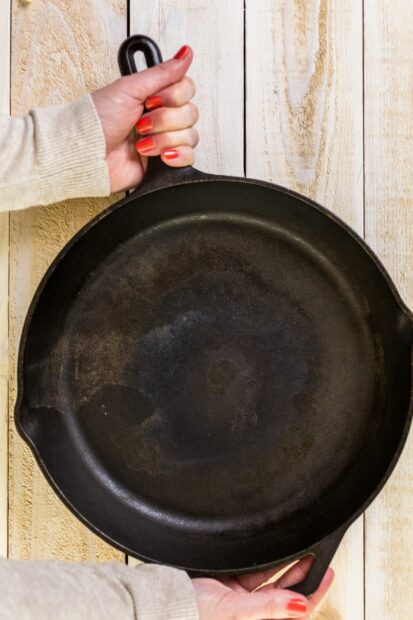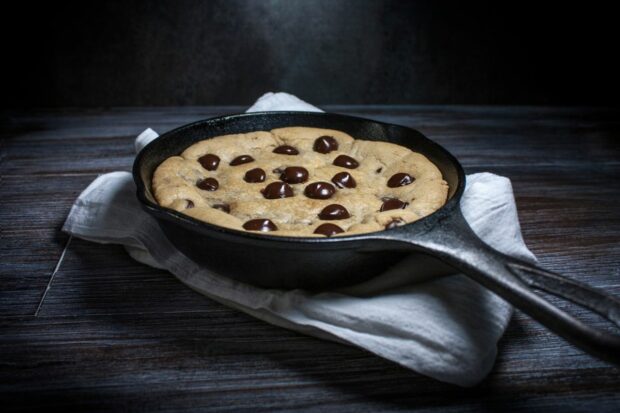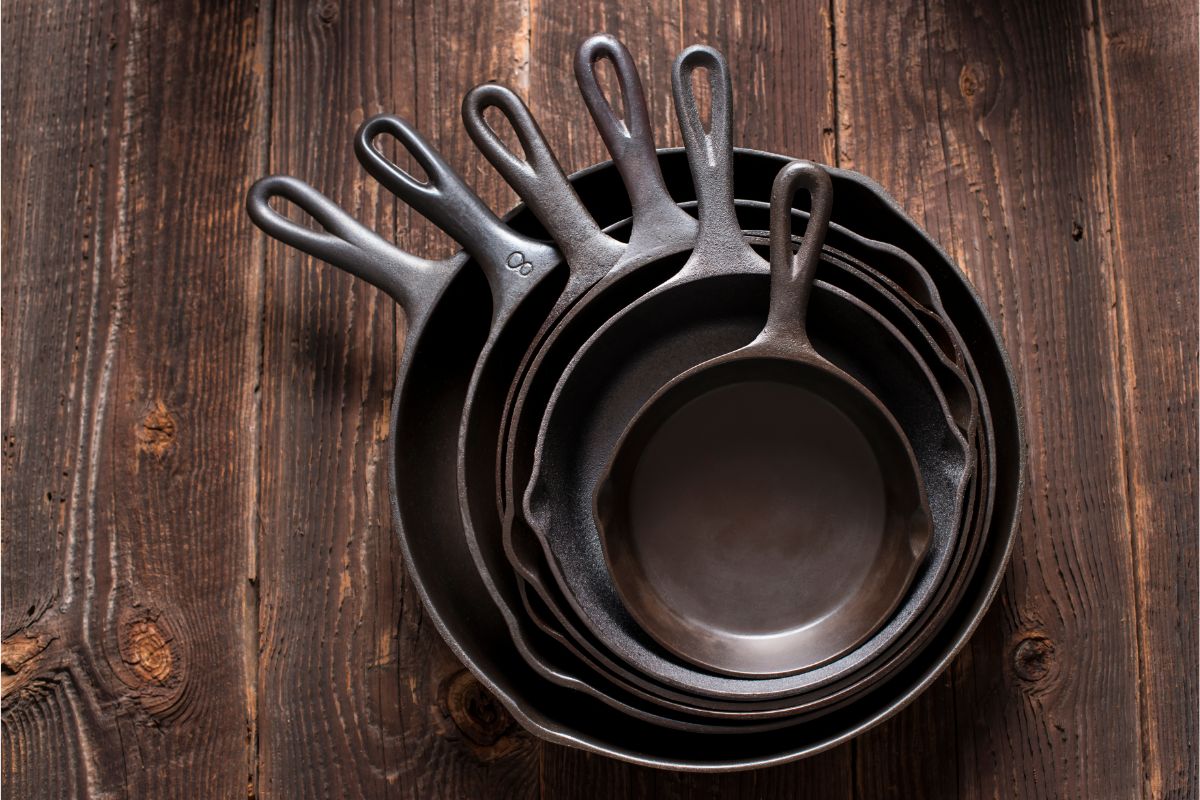For generations, people have been using cast iron cookware to cook all sorts of dishes, but if you’re like most cooks, you’ve probably been told that anything made out of cast iron should stay away from soap and water. Because of this, you’ve likely wondered at some point if that cast iron skillet of yours is even sanitary or safe.
Yes, cast iron skillets are indeed safe to use, but only if you care for them properly in between cooking.

What Is Cast Iron?
Cast iron is a type of iron-carbon alloy and usually has a carbon content of 2%. It is considered by some cooks to be old-fashioned but is definitely making a comeback, and there are many reasons for this.
First of all, cast iron pans and skillets can be used on your stovetop or in the oven. It is naturally non-stick and ovenproof, and you can even use it at high temperatures to cook meats such as steak. With cookware made out of cast iron, you can bake biscuits, fry eggs, and sear a piece of meat to perfection. It is the perfect multipurpose cookware.
You can also take it from the stove or oven to the table, so it can even save you from having to wash more dishes after you finish your meal.
Cast iron pieces also come in many shapes and sizes, from small mini-pans you can use to make dessert to deep skillets used for frying up chicken, and so much more. The point is, if you want a low-maintenance but very versatile cooking pan or skillet, the ones made out of cast iron will rarely disappoint.

Cast iron pieces have been around for more than 100 years, and many of them come pre-seasoned to make your dishes even tastier. Some even come with naturally cool coiled handles. While most of this cookware is dark in color, some are available in a lighter color.
Is Cast Iron Cookware Really Low Maintenance?
Cast iron cookware is sanitary and tends to be low maintenance if you know how to clean it. That being said, it really isn’t that difficult. The main thing you have to remember is that bacteria on cast iron is always a concern, so the first thing you’ll want to do is clean all traces of food off of your cast iron pieces. Most people do this one of two ways: by wiping the piece well with a strong paper towel, or by rinsing it with a small amount of warm water and a tad of mild detergent.
Keep in mind that prolonged exposure to water will cause the cast iron piece to eventually rust, so while the piece needs to be cleaned, it also needs to stay dry as much as possible. Regardless of how you clean your cast iron pieces, always dry them thoroughly when you’re done, and if you like, you can add a few drops of vegetable or olive oil and massage it into the piece to keep it clean and rust-free. The oil also protects the iron and keeps all of the flavor inside to make future dishes taste even better.

What’s the Deal With Seasoning?
Over time, a seasoning layer will build up on your skillet or pan and give all of your foods even more flavor. This is yet another reason to use very little water when cleaning the piece because the more water you use, the more of the seasoning layer is removed. This layer is one of the many reasons why people love their cast iron pieces, but again, it’s crucial that you use little to no water when cleaning your cast iron pieces in order to keep them well-seasoned and prevent rusting.
Of course, cleaning cast iron pieces is not the only thing you have to do with them. After cleaning them, you should also heat them on the stove or in the oven for three to five minutes. This will eliminate viruses and bacteria that may have been left on the skillet or pan, but make sure the temperature gets to at least 160 degrees Fahrenheit every time. You can do this after cleaning the pieces or right before you use them, but it’s an important step that you should always follow.
Cast Iron Skillets Really Are Sanitary!
Cast iron skillets and pans are sanitary and safe to use, though certain cleaning measures should be followed. It isn’t time-consuming to clean and treat cast iron pieces. Cast iron will easily rust, and when this happens, it is very difficult to get it back to functional, so your smartest option is to prevent it from rusting in the first place.
